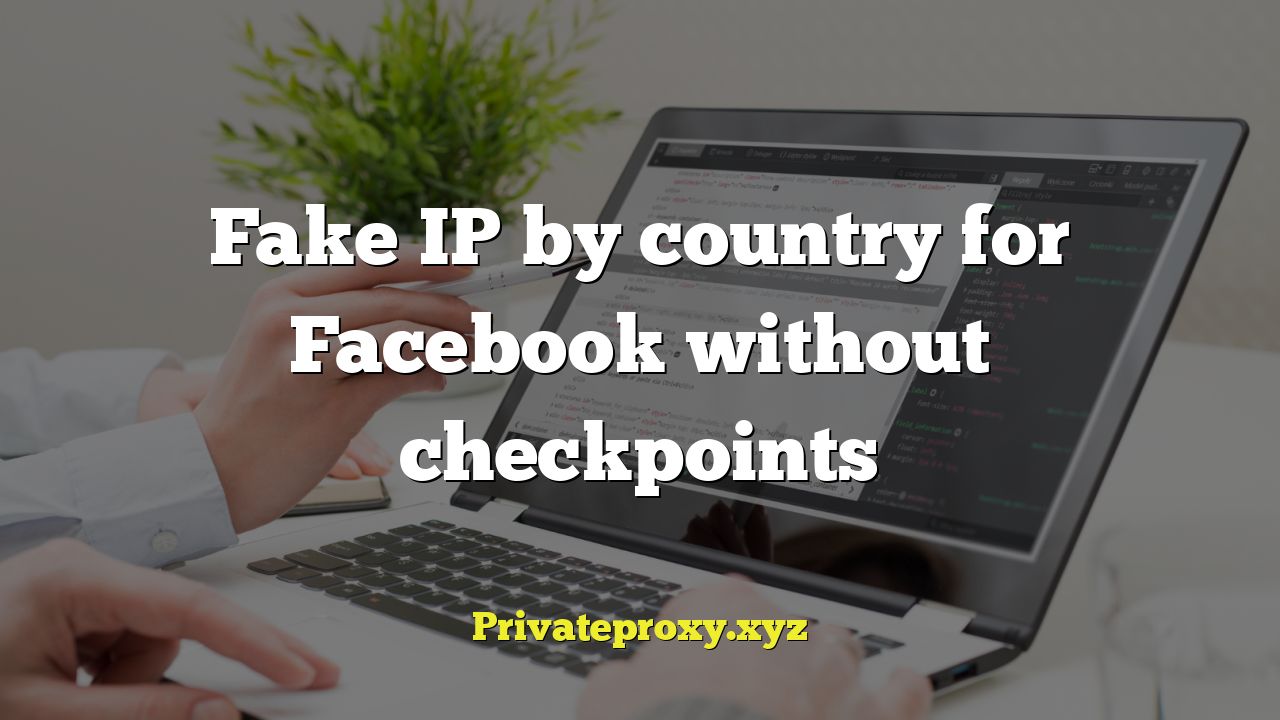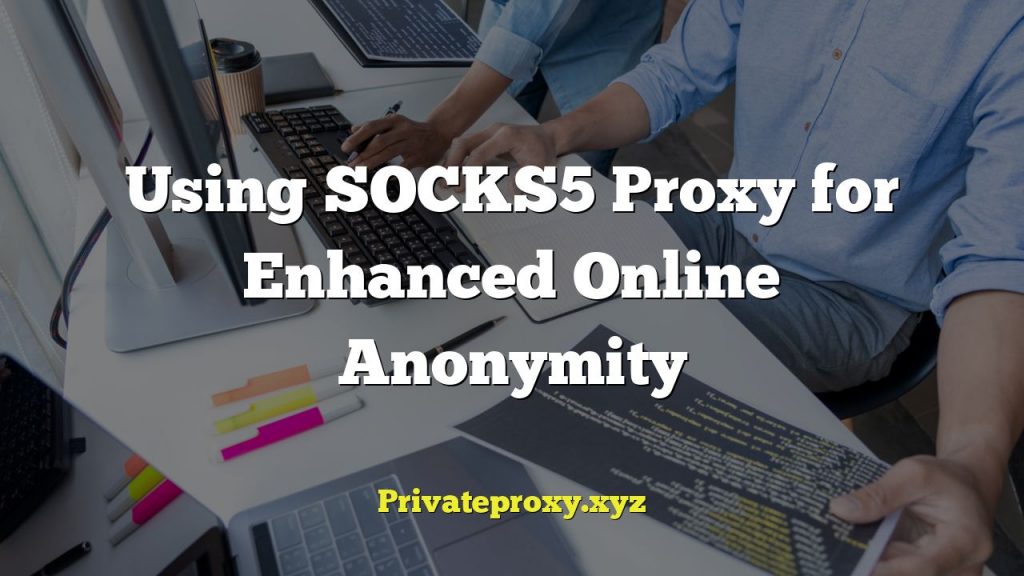
body {
font-family: Arial, sans-serif;
line-height: 1.6;
margin: 20px;
}
h2 {
color: #333;
margin-top: 30px;
}
p {
margin-bottom: 15px;
}
ul {
list-style-type: disc;
margin-left: 30px;
margin-bottom: 15px;
}
li {
margin-bottom: 5px;
}
.disclaimer {
font-size: 0.8em;
color: #777;
margin-top: 20px;
}
Understanding Fake IPs and Their Use
In the digital age, concerns about privacy and security are paramount. The concept of a “fake IP address,” also known as IP masking or IP spoofing, has become increasingly relevant. An IP address is a unique numerical identifier assigned to every device connected to the internet. It reveals a user’s approximate location and can be used for tracking online activity.
A fake IP address aims to conceal a user’s real IP address, replacing it with a different one. This can be achieved through various methods, including using a Virtual Private Network (VPN), a proxy server, or the Tor network. Each method offers varying levels of anonymity and security.
The reasons for using a fake IP address are diverse. Some individuals use it to protect their online privacy from surveillance and tracking by advertisers, government agencies, or malicious actors. Others may use it to bypass geographical restrictions on content, such as accessing streaming services or websites that are blocked in their country. Still, others may use it for more questionable purposes, such as attempting to hide malicious activity or circumventing online regulations.
Facebook and IP Addresses
Facebook, like most online platforms, relies heavily on IP addresses for various purposes. These include:
- Security: Identifying and preventing suspicious activity, such as multiple logins from different locations within a short time frame.
- Personalization: Delivering targeted advertising and content based on a user’s perceived location.
- Geographical Restrictions: Enforcing content restrictions and complying with local laws.
Facebook employs sophisticated algorithms to detect inconsistencies in IP addresses and patterns of usage. When unusual activity is detected, such as a sudden change in IP address or a login from a previously unknown location, Facebook may trigger security checkpoints. These checkpoints are designed to verify the user’s identity and prevent unauthorized access to the account. Common checkpoints include asking users to identify friends in photos, answer security questions, or enter a code sent to their registered email address or phone number.
Fake IP by Country and the Challenge of Checkpoints
The effectiveness of using a fake IP address on Facebook and avoiding checkpoints varies depending on several factors, including the country of origin of the fake IP, the method used to obtain the fake IP, and the user’s overall behavior on the platform. Some countries are known for having a higher concentration of “risky” IP addresses, which are more likely to trigger Facebook’s security measures. These might be countries with a history of bot activity, spamming, or other forms of online abuse.
Furthermore, the quality of the IP address itself plays a significant role. Free or low-cost VPNs and proxy servers often use shared IP addresses, meaning that many users are accessing the internet through the same IP. This can increase the likelihood of detection, as Facebook may flag the IP as being associated with suspicious activity. Paid VPNs and dedicated proxy servers generally offer more reliable and less congested IP addresses, which can reduce the risk of triggering checkpoints.
It’s crucial to understand that Facebook’s algorithms are constantly evolving. What might have worked to avoid checkpoints in the past may no longer be effective today. Additionally, Facebook’s terms of service explicitly prohibit the use of fake IP addresses for malicious purposes, and violating these terms can result in account suspension or termination.
Considerations for Specific Countries
While providing a definitive list of “safe” countries for fake IPs is impossible due to Facebook’s ever-changing algorithms, there are some general considerations based on common experiences:
- Developed countries with strong internet infrastructure and a reputation for legitimate online activity tend to be less likely to trigger checkpoints. Examples include countries in Western Europe (e.g., Germany, France, Netherlands), North America (e.g., Canada), and parts of Asia (e.g., Japan, South Korea).
- Countries with a history of high levels of internet fraud or cybercrime may be more likely to trigger checkpoints. These might include countries in Eastern Europe, parts of Asia, and some African nations.
- It is important to note that even within a “safe” country, certain IP ranges or providers may be flagged due to previous misuse.
Here are some factors that impact the success of using an IP from a particular country:
- IP Reputation: The historical use and association of the IP address.
- Network Stability: The reliability and consistency of the internet connection associated with the IP.
- Geolocation Accuracy: The accuracy of the reported location of the IP address.
It’s important to reiterate that no country’s IP address guarantees complete immunity from Facebook’s security checks. Your account’s activity and history, as well as the type of fake IP used, are equally significant factors.
Best Practices for Using Fake IPs on Facebook (With Caution)
If you choose to use a fake IP address on Facebook, it’s essential to do so responsibly and with caution. Here are some best practices to minimize the risk of triggering checkpoints:
- Use a reputable VPN or proxy service: Choose a provider with a proven track record of security and reliability. Avoid free or low-cost services, as they may be more likely to share your IP address with others and may have less stringent security measures.
- Select an IP address from a country that aligns with your profile: If your Facebook profile indicates that you are located in the United States, using an IP address from China will likely raise suspicion.
- Maintain consistent behavior: Avoid making sudden or drastic changes to your activity on Facebook. Gradually introduce the new IP address and avoid logging in from multiple locations within a short time frame.
- Verify your account information: Ensure that your email address and phone number are up-to-date and verified. This will make it easier to recover your account if it is flagged for suspicious activity.
- Be aware of Facebook’s terms of service: Understand that using a fake IP address may violate Facebook’s terms of service and could result in account suspension or termination.
Alternatives to Using Fake IPs
Before resorting to using a fake IP address, consider alternative solutions that address your underlying concerns. If your primary goal is to protect your privacy, you can adjust your Facebook privacy settings to limit the amount of information you share with the platform and third-party advertisers. You can also use browser extensions that block tracking cookies and other forms of online surveillance.
If you are trying to access geographically restricted content, consider using legitimate methods, such as subscribing to a streaming service that is available in your region or using a travel SIM card when traveling abroad.
The Ethical Implications
Using fake IP addresses raises ethical questions. While it can be a tool for protecting privacy, it can also be used for malicious purposes, such as spreading misinformation, engaging in online fraud, or circumventing laws. It’s crucial to consider the potential consequences of your actions and to use fake IP addresses responsibly and ethically.
Conclusion
Using a fake IP address on Facebook to avoid checkpoints is a complex issue with no easy answers. While it can be done, it requires careful planning, execution, and an understanding of Facebook’s security measures. It’s important to weigh the potential benefits against the risks and to consider alternative solutions before resorting to using a fake IP address. Always be mindful of Facebook’s terms of service and the ethical implications of your actions. Remember that the internet is a shared space, and it’s our responsibility to use it in a way that is both secure and respectful.
Disclaimer: This article provides general information about fake IP addresses and their use on Facebook. It is not intended to provide legal or technical advice. The use of fake IP addresses may violate Facebook’s terms of service and could result in account suspension or termination. We do not endorse or encourage the use of fake IP addresses for illegal or unethical purposes.


